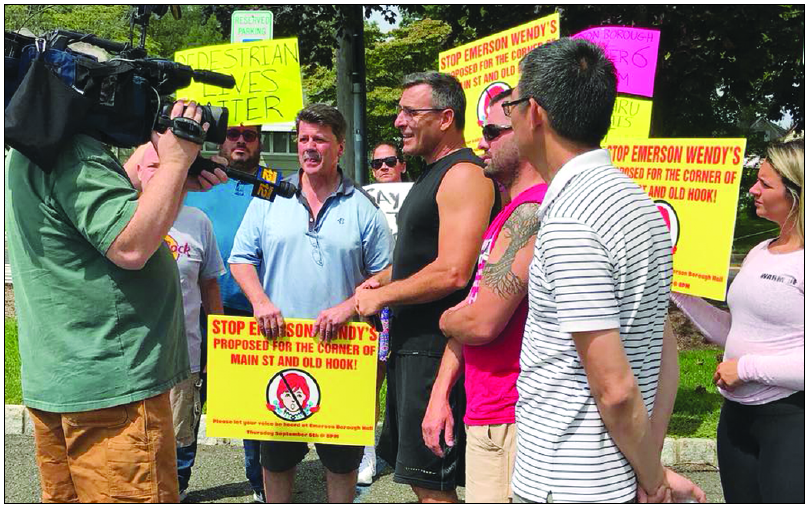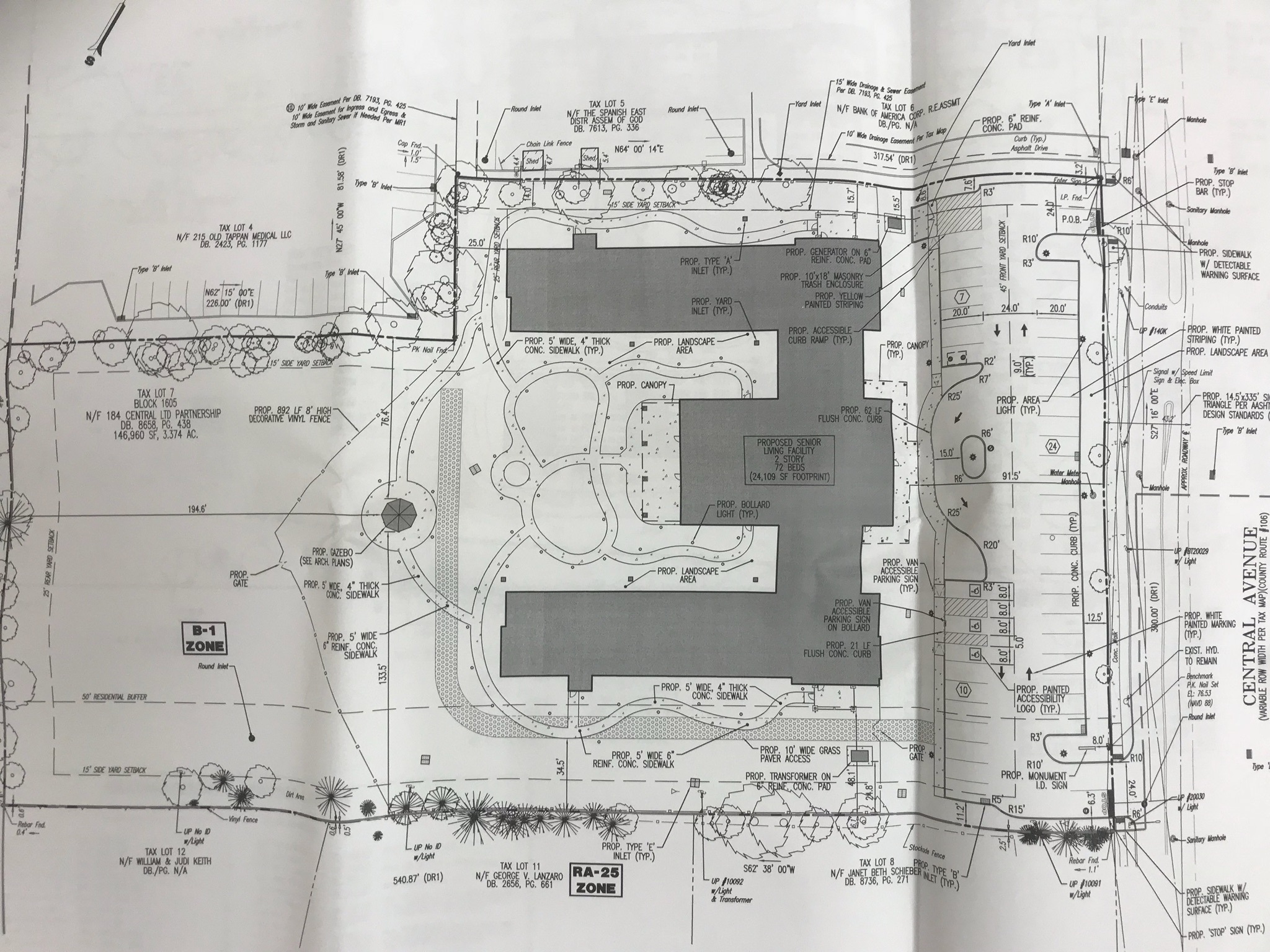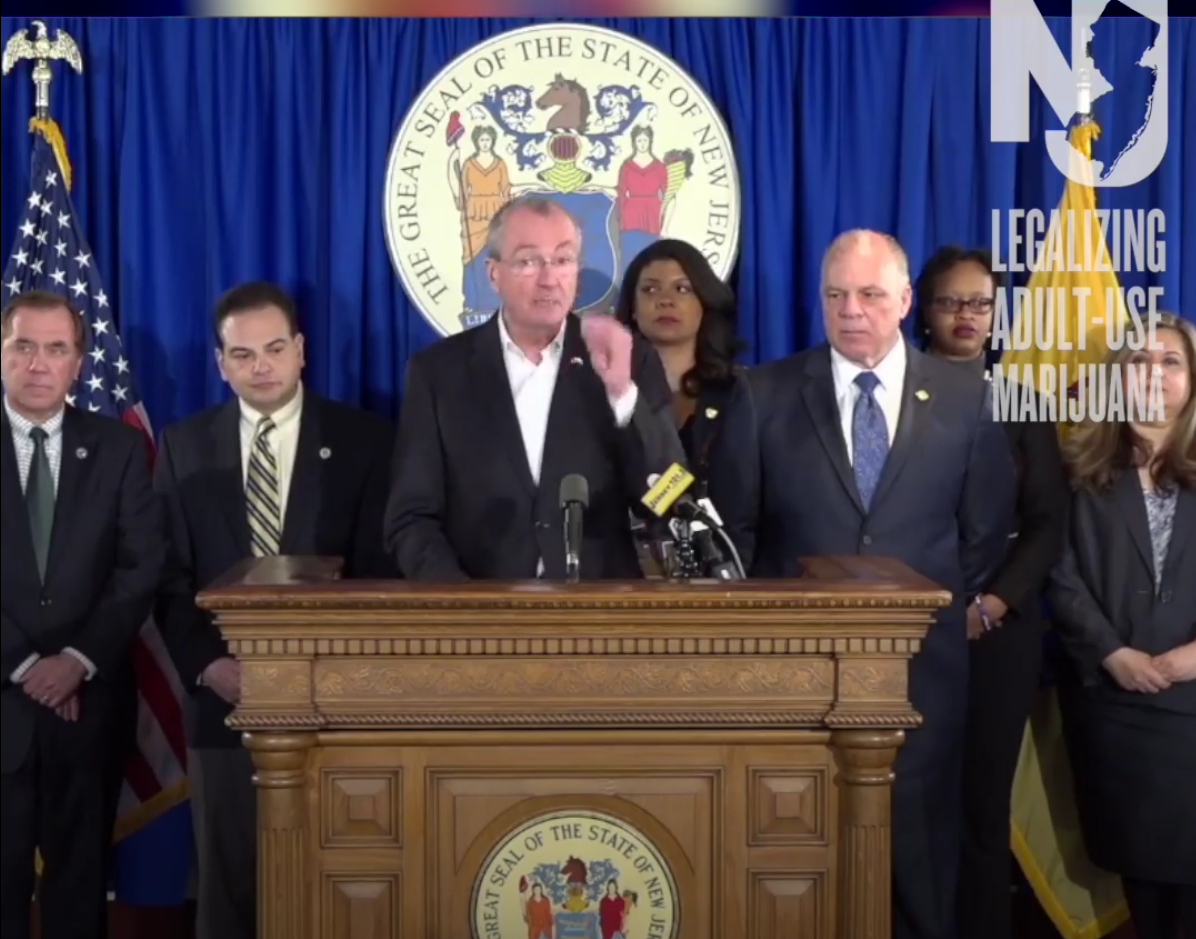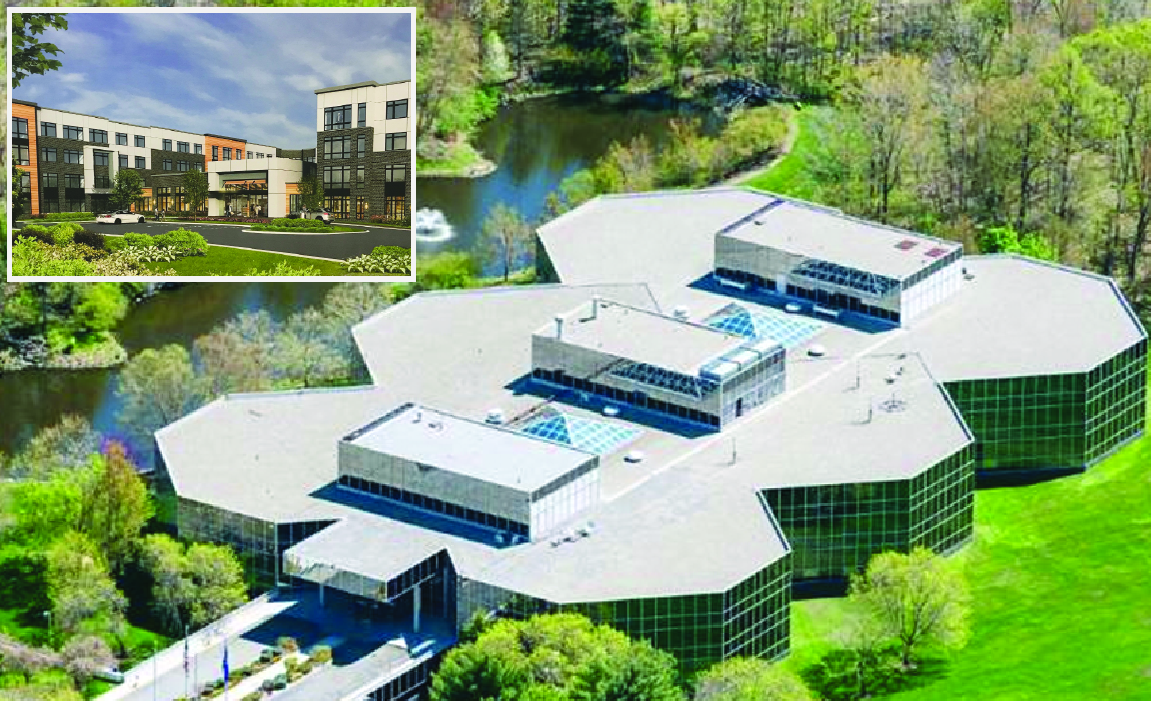
BY MICHAEL OLOHAN
OF PASCACK PRESS
PARK RIDGE, N.J.—The fate of a nearly 30-acre Park Ridge property owned by Hornrock Properties—with proposals for up to a 972-unit multifamily housing complex—is likely to be decided by a trial, should a judge decide the long-debated affordable housing plan remains in dispute at an upcoming case conference.
The meeting before Superior Court Judge Gregg Padovano had been scheduled for Monday, April 1—but, at press time, Padovano’s Secretary Lynn Gargagliano told Pascack Press it had been adjourned and would be rescheduled at a time to be determined. The proceedings are open to the public.
At a March 4 case conference hearing in Superior Court, Padovano said he was likely to set a May/June trial date if the parties—specifically Hornrock Properties, Park Ridge, and Fair Share Housing Center—cannot agree on an affordable housing obligation number and how to fulfill it.
Hornrock Properties has been an intervenor in Park Ridge’s affordable housing settlement plan since 2015 when the state Supreme Court declared the Council on Affordable Housing defunct—following 16 years of inaction—and delegated affordable housing authority to state Superior Courts.
COAH’s inaction was due to legal battles over methodologies being used by COAH to calculate local affordable housing obligations and political inaction over appointments to COAH.
The borough has been negotiating its plan since filing a declaratory judgment in July 2015, and received “builder’s immunity” for meeting state-mandated deadlines set by Superior Court since then.
900-plus units debated
While Hornrock contends that its nearly 30-acre property can be developed for 972 multifamily units in an “inclusionary development” to help Park Ridge meet its affordable housing obligations, the borough maintains the property should remain commercial office space and is not suitable for multifamily development. Its settlement plan lists the property for zero units of multifamily or affordable housing.
Meanwhile, on a 7-acre adjoining parcel at One Sony Drive in Montvale, a proposed 185-unit multifamily development with 37 affordable units by Hornrock Properties is currently before Montvale’s Planning Board. Montvale settled its affordable housing plan in early 2018.
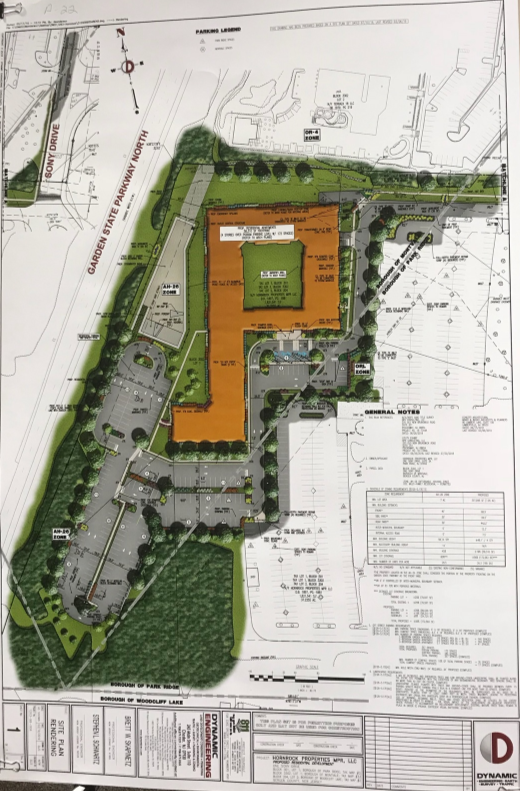
Since March 2018, when Park Ridge submitted its affordable housing settlement plan, both Hornrock and Park Ridge have argued over how each side determined calculations and assumptions in the plan, spending hundreds of thousands of dollars on lawyer fees.
Park Ridge Mayor Keith Misciagna has publicly stated that the costs are well worth it, leading local resistance against so-called “high density overdevelopment” being forced on municipalities to implement state affordable housing mandates.
Both Hornrock and Park Ridge have been legally challenging each other in Superior Court— voicing objections, filing motions, and generally mired in legal arguments—over what experts’ report or statement or conclusion underlies aspects of the borough’s contested affordable housing plan.
At its basis, it involves a conflict over whether either side will compromise without going to trial over how affordable housing numbers are developed and affordable obligations are determined.
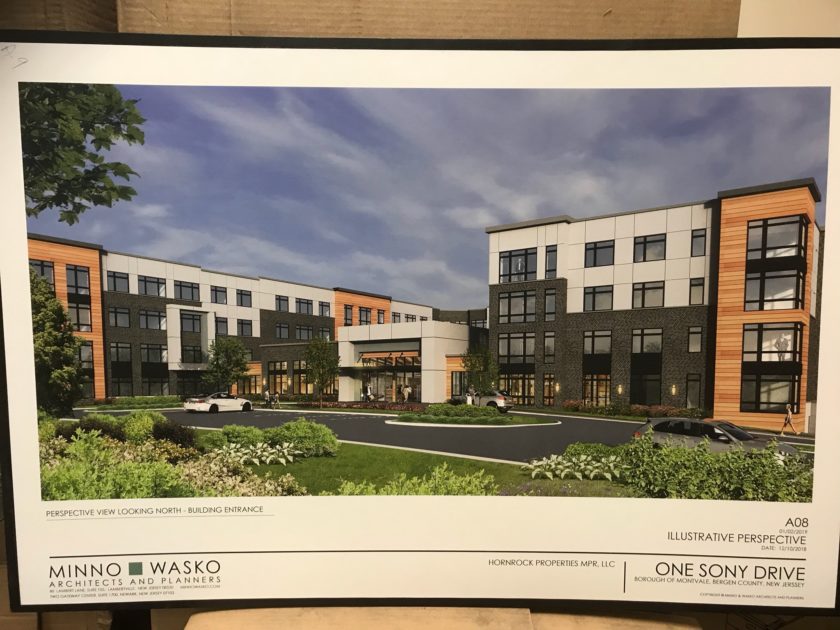
More affordable units
However, at a March 4 case conference, both Hornrock and Fair Share Housing Center were caught by surprise by two changes that the borough made to its settlement plan, increasing the number of affordable units offered but still excluding Hornrock’s property.
Park Ridge’s affordable housing special counsel Scott Reynolds told lawyers that Park Ridge revised the settlement plan’s realistic development potential from 81 units to 132 units and changed the 100 percent affordable housing development planned at Bear’s nest from 31 units to 51 units.
Joshua Bauers, Fair Share’s attorney, questioned why Park Ridge was not presenting a detailed plan for the new units being proposed at Bear’s Nest, which he said was standard under rules established by the previous Council on Affordable Housing.
He asked how Park Ridge was planning to meet the new realistic development potential (RDP) number, which he said was not clear, noting it was not even assured they could meet the previous RDP number of 81.
The 80-minute March hearing was interrupted by multiple legal disputes on the new RDP and increased 51 units of affordable housing at the Bear’s Nest site—both numbers heard March 4 for the first time.
Fair Share’s attorney said he was “skeptical” about putting that many units at Bear’s Nest.
“Candidly, a lot more information is required,” said Bauers, asking who would pay for increased affordable units, what financing would be used, and who would build and manage the units.
‘The borough hasn’t explained any of this’
Reynolds said that Bergen County United Way would be involved with financing and management of the units at Bear’s Nest.
“That doesn’t explain that the borough hasn’t explained any of this,” said Bauers at one point, after Reynolds repeatedly requested that a Fairness Hearing be scheduled for the newly revised settlement plan.
A developer for the 100 percent affordable housing site with 51 units said the units would consist of “a mix” of affordable types, including age-restricted, veterans, supportive housing and family units. When the developer said a new access road was being planned, Bauers said that needs to be spelled out in the plan.
After Reynolds again pressed for a fairness hearing—which determines if the affordable plan fulfills state Mount Laurel mandates—Padovano said he was curious about what they were proposing.
“If there’s no new plan, what is the basis for coming up with the new numbers?” asked Padovano. Reynolds said that the numbers were fluctuating a little as the borough moved close to a final settlement plan.
Padovano asked special master Frank Banash to meet with Park Ridge, Hornrock and Fair Share to clarify the new RDP numbers and determine what Park Ridge planner Joseph Burgis told Fair Share’s attorney in a deposition about the new RDP calculation and whether the Bear’s Nest newly proposed 51-unit affordable complex is possible.
Padovano said he was not looking forward to a trial on the methodology being used to calculate Park Ridge’s fair share housing obligation “because it’s going to take a while.”
“Let’s not try to break new ground,” he added.
Only one other county municipality—Englewood Cliffs—had prepared to go to trial over methodology recently but that trial was put on hold and settlement talks were continuing.
“We need to address what we’re dealing with here. It’s time to move forward,” Padovano told the lawyers March 4.
Hornrock attorney Richard Hoff called the whole legal process “frustrating because they [Park Ridge] shouldn’t get the benefit of their incompetence…we’re building in all of these ‘try-agains’ for the borough.”
Hoff requested the judge schedule a trial date at the conference, and had done so at previous case conferences.
Several times, Reynolds said he would prefer a Fairness Hearing before a trial date was scheduled, noting a trial “will be a tremendous cost to taxpayers in Park Ridge.”
Padovano noted only 18 towns in Bergen County have not yet settled affordable housing plans, but he said 75 percent are close to settling.
Last May, the borough approved a $320,000 line item for professional fees related to affordable housing litigation, accounting for half of a 4.8 percent increase in property taxes.
Misciagna said then he was “committed to fighting this high-density development,” which was one of the mayor’s campaign themes.

